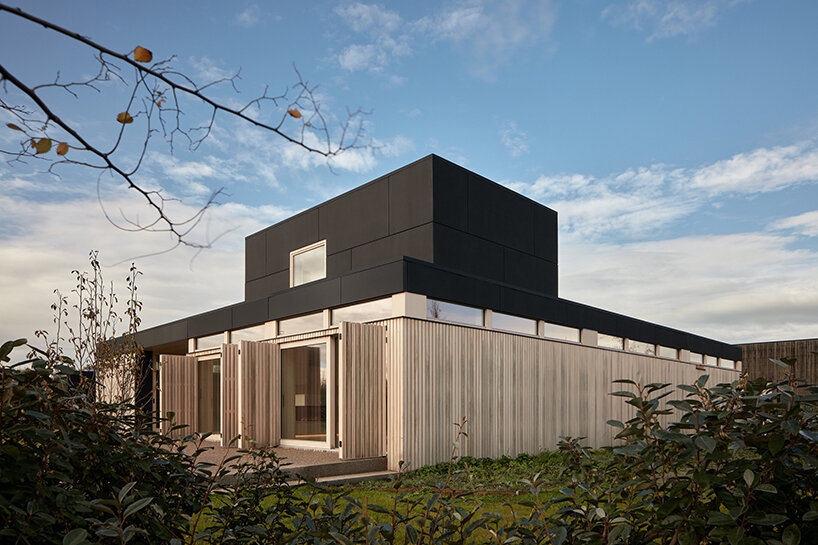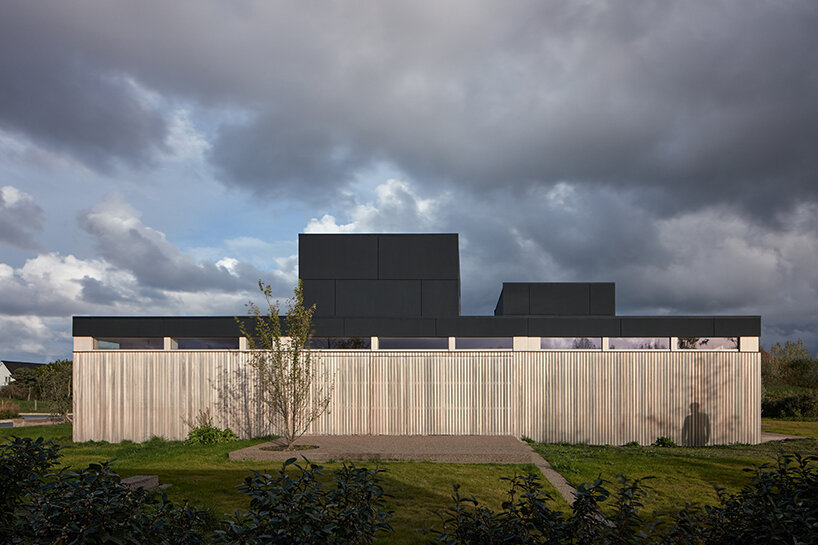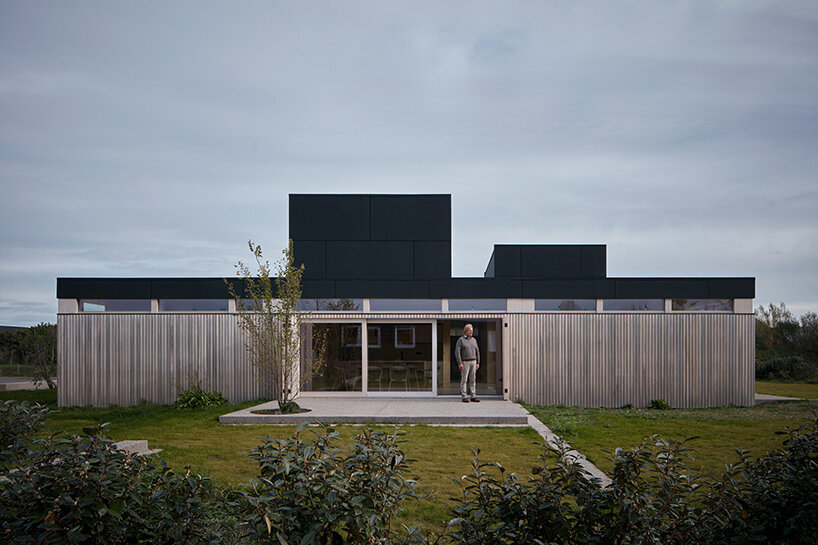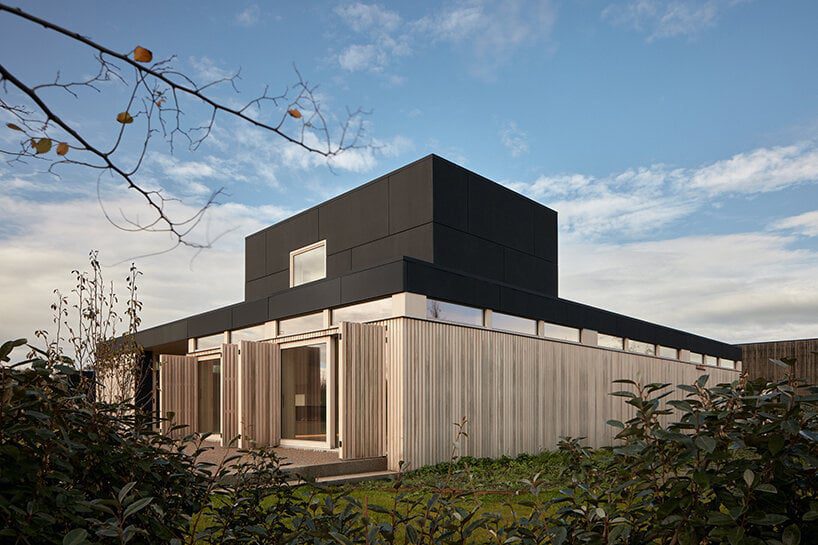warm nest by ark-shelter uses neuroscience to achieve comfort
Warm nest provides a calming environment for recovery
Ark-shelter showcases their expertise in creating calm environments with Warm Nest, a Maggie Center in Belgium. The healthcare facility is designed to provide a comfortable setting while patients receive cancer treatment and heal. Maggie Keswick Jencks conceptualized the Maggie Center after experiencing cancer diagnosis, treatment, remission and recurrence. Her insights were valuable in pioneering a new architectural approach to cancer care. In Warm Nest each room is specifically designed to reflect the level of intimacy and the emotions that occur within.

Ark-shelter showcases their expertise in creating calm environments with Warm Nest
images by BoysPlayNice | @boysplaynice
ark-shelter uses neuroscience to design different spaces
The design practice Ark-shelter specializes in prefabricated dwelling constructions with organic materials, dark tones and heavy glazing, exuding a sense of peace. The feelings evoked in these dwellings are what AZ Zeno wished to capture in the healing center. Throughout the design process, Ark-Shelter consulted a neuroscientist in order to better grasp the influence of space on the human consciousness. The task was to carefully analyze the various emotional touchpoints that occur through cancer treatment and to construct ‘brain healthy spaces’.

the healthcare facility is designed to provide a comfortable setting while patients heal
a calming and comfortable space where patients regain strength
The concept for Warm Nest is a welcoming, non-intrusive space that focuses on calm gatherings, time to regain strength, and the journey to recovery. A soft ramp leads to the entrance and almost every inch of the building has views to the outdoors. The light wood interiors coupled with abundant windows removes the hospital look and feel from the facility. A comfortable courtyard provides a serene slice of nature while protecting from the wind.

Maggie Centers pioneer a new architectural approach to cancer care

